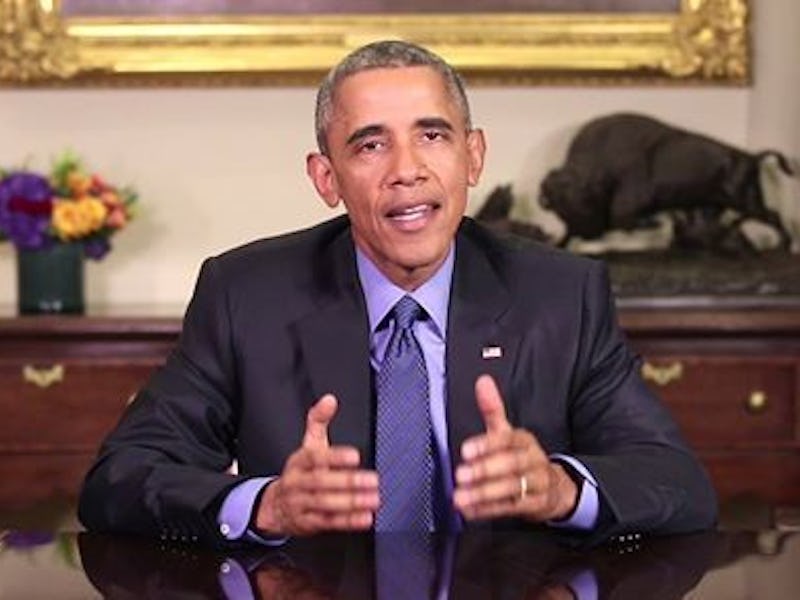Obama Continues to Prove the War on Drugs Was Very, Very Bad
Commutes the sentences of 46 offenders

Today, President Barack Obama has commuted the sentences of 46 federal drug offenders, The New York Times reports. In a video on the White House’s Facebook page, Obama signs the commutation letters and delivers the following:
These men and women were not violent criminals, but the overwhelming majority had been sentenced to at least 20 years; 14 of them had been sentenced to life for nonviolent drug offenses, so their punishments didn’t fit the crime. … I believe that America, at its heart, is a nation of second chances, and I believe these folks deserve their second chance.
With today’s 46, Obama has now issued 89 commutations – the most since Lyndon B. Johnson’s 80 — and more than the last four presidents combined. Obama plans to continue talking about the injustice of drug laws, with a speech tomorrow at the NAACP’s annual convention in Philadelphia.
Obama’s announcement is now one of the biggest condemnations of the War on Drugs. The federal program began in the ‘70s under Richard Nixon and was brought to its peak in the ‘80s by Ronald Reagan, who implemented exceedingly high penalties for minor drug offenses. Most notably, the War on Drugs increased the severity of punishment for drug-related crimes.
Also part of the War on Drugs, local police departments receive military-grade equipment to combat “dangerous” offenders. As a result, drug arrests have gone up considerably since the War’s inception, which makes it look like the program works. The reality, however, is that the War on Drugs creates crimes that weren’t serious and shouldn’t be treated as such. Dangerous crime hasn’t increased, but arrests have.
The War on Drugs, essentially, facilitated a way to create an underclass, targeting black and Latino Americans in particular. The policies allow police to arrest those in possession of small amounts of drugs. Instead of going through a trial (for which many victims cannot afford a good lawyer), those arrested are urged to take plea deals with smaller sentences – not that anybody wants to spend 5 to 10 years in prison. Upon release, these now-felons cannot get proper jobs because of their “criminal past,” and many are forced back into illegal trade. It’s a vicious cycle.
President Obama’s acknowledgement of the problem is a huge step toward progress. Today, just 46 people are affected, but those 46 human beings get their lives back from a flawed system. Hopefully, the success of Obama’s commutations and its positive effects will make policymakers more inclined to reform the dated draconian laws.
My views are heavily informed by Michelle Alexander’s seminal work on the topic, “The New Jim Crow.” It’s an increasingly necessary read as racist police violence has become a more visible public issue over the past two years.